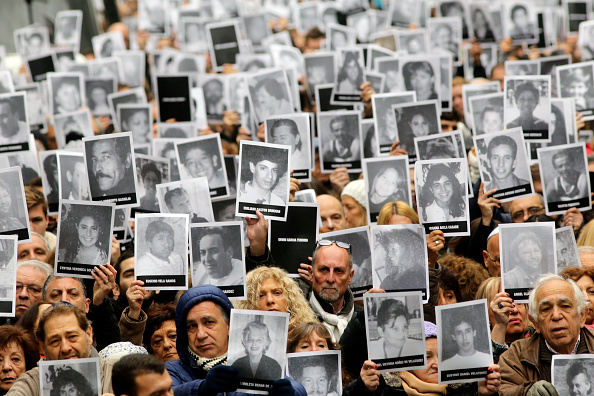Experts say that Iran-backed Hezbollah, fired with a zeal to avenge the death of Soleimani, could pose a serious security threat to the region and beyond in the days to come. Joseph Humire, executive director of the Center for the Study of a Free and Secure Society, a global security expert who specializes in asymmetric warfare theory and transnational threats, says that now that Soleimani is dead, “Iran can activate Pasdaran (Revolutionary Guards) networks in at least sixteen Latin American countries to take revenge against the United States and/or our allies in the region.”
According to Ghanem Nuseibeh, founder of strategy and management consultancy company Cornerstone Global Associates, going forward, “it is likely Latin America will be an even more important frontier for Hezbollah as it is a region in which the group has invested so many resources.”
Henry Rome, Iran analyst with Eurasia Group, says that Iran is not likely to attack Saudi Arabia or oil infrastructure in the Emirates, and it should stay away from the US bases, but that it is more likely to respond in unpredictable, asymmetric ways “akin to the Iran-backed attack in 1992 against a Jewish community center in Argentina.”
In 1992 and 1994, the Iranian proxy group Hezbollah planned and carried out two attacks on Jewish and Israeli sites in Buenos Aires, Argentina that killed more than 100 and injured hundreds more. The trigger for those attacks was Argentina’s suspension of cooperation on nuclear technology with Iran. Iran and Hezbollah denied responsibility for the deadliest attack the country’s history, but in 2015, Argentinian special prosecutor Alberto Nisman publically accused then-president Fernández de Kirchner of having covered up Iran’s role to preserve diplomatic relations. Several days after he made this accusation, he was found dead in his apartment, in circumstances that remain suspicious.
The combined attacks inflamed public opinion in Argentina and elsewhere against Hezbollah. Cardinal Jorge Bergoglio, the future Pope Francis, signed a document demanding justice for the victims, and Argentine prosecutors later issued an arrest warrant for Hezbollah’s military chief, Imad Mugniyah. In 2007, Interpol followed suit, issuing a red notice for the Hezbollah leader.
US Secretary of State Mike Pompeo attended a Latin America counter-terrorism conference last year that focused on Iran and Hezbollah, and coincided with the date of the bombing on July 18, 1994. At the commemoration, Pompeo blamed Iran for causing the death of so many victims, saying, “they were killed by members of a terrorist group, Hezbollah, and had help that day from Iran.”
The US focus on Iran and Hezbollah has been welcomed by those who understand the gravity of the threat they pose in Latin America. Also on the 25th anniversary of the Jewish center in Buenos Aires, Argentina announced that it had designated Hezbollah a terrorist organization and frozen its assets. “At present, Hezbollah continues to represent a current threat to security and the integrity of the economic and financial order of the Argentine Republic,” Argentina's Financial Information Unit said.
Argentine officials say Hezbollah is engaged in illegal activities between Argentina, Brazil, and Paraguay to finance its operations elsewhere. In August 2019, Paraguay—where much of Hezbollah’s fundraising in the area was carried out—followed suit and designated Hezbollah as a terrorist organization.

Much has been written about Hezbollah’s presence in the “triple frontier” area along the Paraguay-Argentina-Brazil border in South America, the Iran-backed terrorist group’s most active financial hub in the region. The Lebanese militant group has been active in South America since the early 1980s. It has used its influence in the region to recruit Latin America's Lebanese diaspora, known in the region as "turcos," and other Muslim populations. But in recent years, the group has shifted its focus from bombings to raising money by joining South America's lucrative drug-trafficking businesses.
Iran and Hezbollah have repeatedly attempted to engage in transactional relationships with transnational organised criminal groups in Latin America. The most glaring example of that strategy was the plot to assassinate the Saudi Ambassador to the United States in 2011. In October of that year, federal prosecutors in the Southern District of New York charged two Iranian men with attempting to recruit members of a Mexican drug cartel to assassinate the Saudi ambassador, most likely with a bomb planted in a restaurant in Washington, D.C. According to the complaint against the two men, the mastermind of the plot was Golam Shakuri, a Quds Force official based in Iran. Shakuri directed Manssour Arbabsiar, an Iranian American dual national, to approach members of a drug cartel and offer to pay them to assassinate the ambassador. Manssour unintentionally approached a confidential source for the Drug Enforcement Administration Agency, who posed as a member of a cartel and agreed to carry out the bombing.
But even beyond the Tri-Border Area, Hezbollah is well-entrenched in Venezuela, where the Shiite terrorist group has long worked to establish a vast infrastructure for its criminal activities, including drug trafficking, money laundering, and illicit smuggling. For example, Margarita Island, located off the coast of Venezuela, is a well-known criminal hotbed where Hezbollah members have established a safe haven. In contrast with the hardening stances of Brazil and Argentina, the government of Venezuelan socialist President Nicolas Maduro views Hezbollah as a natural ally as part of a policy first adopted by his predecessor, Hugo Chavez, who deepened ties with Iran when he came to power in 1999.







